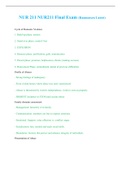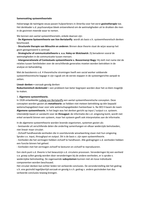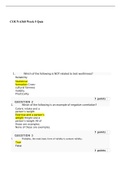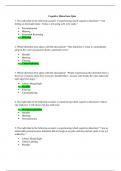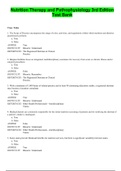Samenvatting
Summary Management of Organizations in Europe
- Instelling
- Haagse Hogeschool (HHS)
(Book replacing) Elaborate summary of the chapters 5-10 of the book Business Essentials, contains all the study material needed for the course & exam of Management of Organizations in Europe.
[Meer zien]







